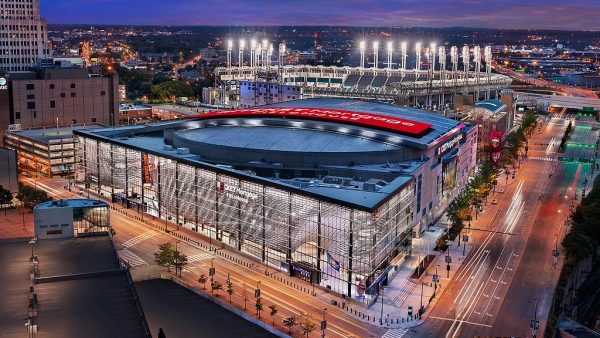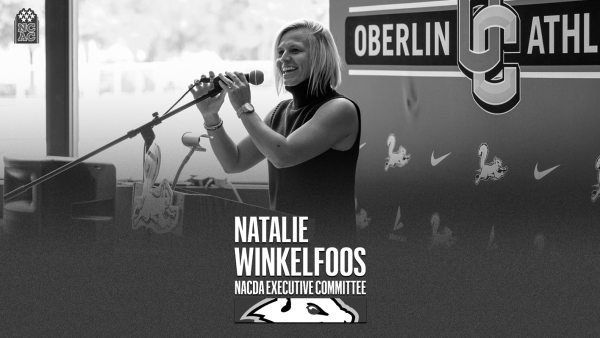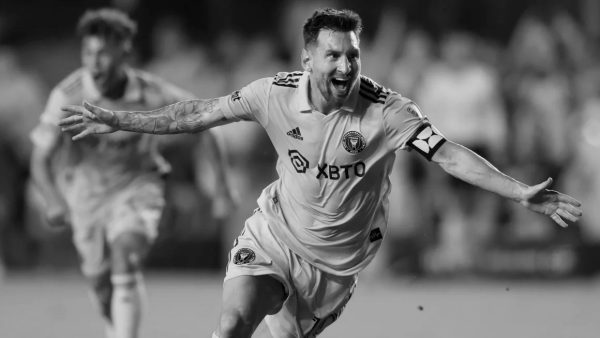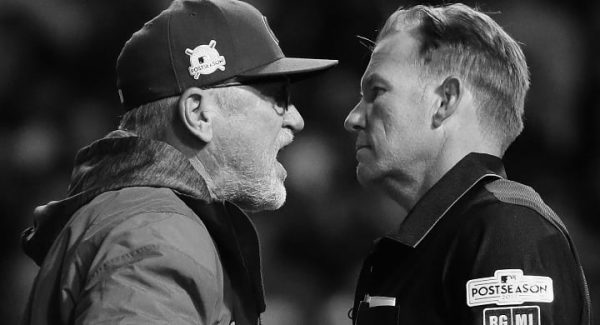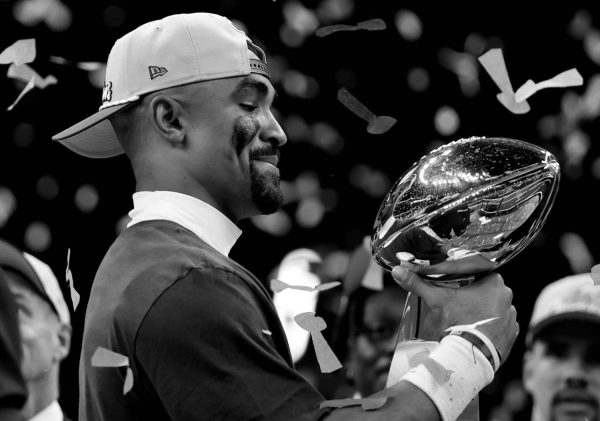Shaquem Griffin Deserves Serious Chance to Play in NFL
A couple hundred of college football’s most talented players travel to Indianapolis each offseason to dazzle scouts and spectators with their athleticism and skills at the NFL Scouting Combine. This year, future franchise quarterbacks Sam Darnold and Josh Rosen, former Heisman winners Baker Mayfield and Lamar Jackson, and Penn State standout Saquon Barkley — recently touted as the best running back prospect since Adrian Peterson — all impressed, but none of them were the focus of attention. Instead, University of Central Florida linebacker Shaquem Griffin dominated the headlines.
The 6-foot-1-inch, 227-pound 22-year-old, who was a late invite to the combine, ran the 40-yard dash in 4.38 seconds Sunday, the best time for a linebacker since 2003. To put into perspective how fast that is, recall that wide receiver Odell Beckham Jr. ran the 40-yard dash in 4.43 seconds in 2014, and electrifying running back Ezekiel Elliott ran it in 4.47 seconds in 2016. The day before, Griffin bench pressed 225 pounds for 20 repetitions. Prior to the combine, Griffin said his goal was six reps, and his previous personal best was 11.
Based on Griffin’s performance at the combine, one might rightfully question why his invitation didn’t come until Jan. 30. He was named the American Athletic Conference Defensive Player of the Year in 2016 and selected to the All-America Second Team in 2017 — a season in which the Knights earned a perfect 13–0 record. It’s fair — even logical — to say that the only reason Griffin isn’t one of the most sought-after prospects among NFL general managers is because he is missing his left hand.
Griffin was born with amniotic band syndrome, a rare condition caused by strands of the amniotic sac that separate and entangle digits, limbs, or other parts of the fetus, according to the University of California, San Francisco’s Fetal Treatment Center. The condition prevented the fingers on Griffin’s left hand from growing properly, which, as a toddler, kept him up most nights in severe pain. At the age of four, Griffin had his hand amputated.
In a powerful letter that Griffin penned to general managers through The Players’ Tribune, Griffin made his case for why he shouldn’t be overlooked. He credits his past successes and attitude to the way he, his twin brother, Shaquill — a cornerback for the Seattle Seahawks — and their older brother, Andre, were raised by their father, Terry Griffin. Terry used to set up obstacles throughout the backyard for the trio to dodge as they ran routes and caught a bullet throw from their father. If they dropped the football, Terry would say, “Nothing comes easy. You’ll thank me one day.”
Griffin also recalled some of the most painful experiences of his life when his resilience was tested the most. While Shaquill was out on the football field the twins’ first couple of years in college, making plays and a name for himself, Griffin sat in his dorm room, alone, living vicariously through Shaquill. He wasn’t asked to travel with the team until his junior season at UCF. Griffin really saw the field when Scott Frost took over the football program in 2015, after a season in which the Knights went 0–12.
“I started playing football because I loved it,” Griffin wrote in his article. “And yeah, just like anybody else, my view of the game has definitely changed as I’ve gotten older. But it hasn’t turned into a job or an obligation. It’s developed into a purpose.”
Griffin claims people have doubted him his entire life. As he has continually shown, however, they have only encouraged him to work harder to prove himself. More importantly, his situation has made him a real role model for kids like him, who may themselves be victims of ableism — feeling like they don’t belong in a certain sport because of negative attention they’ve received. Griffin is just as talented as many other players in the draft, if not more talented. He has just had to work a lot harder. If Griffin wasn’t missing a body part, how much higher would his stock be?
According to Sports Illustrated, a number of scouts predict that Griffin will be drafted somewhere in between the fourth and sixth rounds. Seattle Seahawks cornerback Richard Sherman would like to see the linebacker drafted sooner, tweeting, “If [Shaquem Griffin] doesn’t get drafted in the first two days, the system is broken.” The Seahawks were the only team out of 32 to officially interview Griffin at the seven-day event.
Griffin has been one of the best stories to come from the combine in years, but he has also shed light on some truths that we must all remember before we judge a book by its cover. What an athlete looks like does not determine what they are capable of on the field. Griffin has proved he has the mental grit, dedication, and heart to make it at the next level.
If given the chance, I believe Griffin will make the most of it. Former Major League Baseball pitcher Jim Abbott was born without a right hand, and he spent 10 seasons performing at the highest level. Abbott would rest his glove on the end of his right forearm, then quickly transfer it onto his left hand after delivering a pitch. If hit to him, Abbott would slide his mitt off, take the ball out, and throw it to first, usually beating the runner.
In 1993, while sporting the pinstripes in Yankee Stadium, Abbott threw a no-hitter against a dominant Cleveland offense that featured Kenny Lofton, Carlos Baerga, Albert Belle, and Jim Thome.
Professional surfer Bethany Hamilton lost her left arm when she was 13 years old in a shark attack. Just one month after the incident, Hamilton returned to the water, determined to teach herself how to surf with one arm. Two years later, she won the Explorer Women’s division at the National Scholastic Surfing Association National Championships.
The character of these remarkable athletes overshadowed what they lacked physically, and I have no reason to believe that Griffin’s legacy will be left out when people talk about Abbott and Hamilton a decade or two from now. His presence in an NFL stadium will encourage athletes all over the country with disabilities to stay in sports and keep dreaming, because anything is possible.


